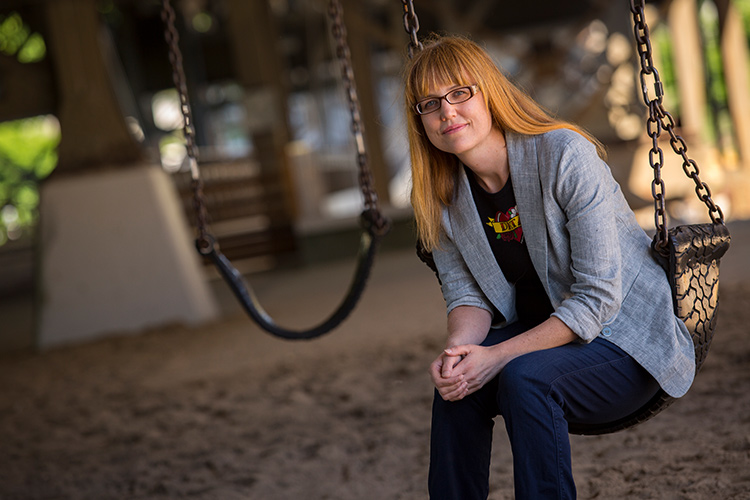
Protecting children using data science
Colleen Janczewski gets monthly data deliveries that contain some of the most sensitive information being archived in Wisconsin: records of 7,000 children who have been referred to the state’s Child Protective Services, or CPS.
Janczewski systematically analyzes the data in search of red flags, taking a view that’s broader than those of individual caseworkers. Doing so helps identify families at risk for child neglect or maltreatment, including some to whom CPS can offer early services and support before a formal CPS investigation is opened.
“Improved child safety is our ultimate goal,” says Janczewski, an assistant professor of social work in the Helen Bader School of Social Welfare.
CPS began this work in 2010 under its Alternative Response pilot program. It serves at-risk families in cases that are less severe and less likely to require involving law enforcement or the courts. Examples include habitual truancy or unsafe housing situations. Caseworkers can offer preventive resources, such as a parenting class or a housing referral.

In Alternative Response cases, CPS workers use approaches designed to improve family engagement, allowing for better child safety assessments and discussions about available services. “It’s more likely,” Janczewski says of the families, “that they will have good relationships with their caseworkers and benefit from support services.”
In addition to analyzing anonymous CPS records, Janczewski designed a 30-minute telephone survey for families who have been through Alternative Response. More than 1,000 caregivers completed it, and their responses, along with CPS records, show signs of success.
“Moving forward,” Janczewski says, “we can serve families safely while still doing good social work by engaging families in the process.”